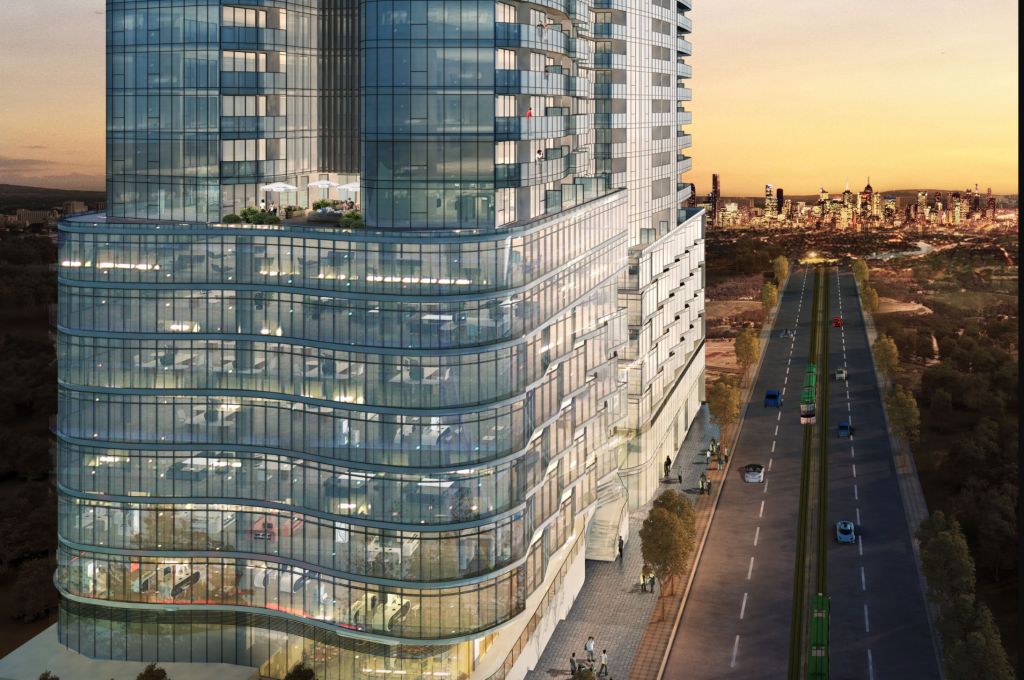
China's largest co-working operator lands in Melbourne
China’s largest co-working operator Ucommune, a NASDAQ listed business whose stock has fallen heavily this year, will open its first Australian space in Melbourne.
Ucommune is partnering with Hexa Group to take out two floors of its almost completed 31-level Panorama building in Box Hill, a north-eastern suburb with increasing levels of high-rise development and a large Chinese population.
In a five-year agreement, Ucommune has agreed to “provide a broad range of services to Hexa Group including the design, operation, management, and marketing of the 1,100-square-meter co-working space”.
The partners said there is potential for the partnership to expand across several Australian sites over the next three years.
Daqing Mao, founder of Ucommune, said the deal “marks a significant milestone in the development of our asset-light business model”.
“Empowering property developers with our expertise and capabilities in co-working space operations demonstrates the advantages of our asset-light business model,” he said.
“We expect to develop the ‘Hexa Space-Ucommune’ project as a benchmark case of our asset-light business model, accelerate our business expansion in overseas markets, and grow Ucommune into an international brand.”
Of its 282 locations, Ucommune has just five outside China – four in Singapore and one in Hong Kong.
Hexa Group’s co-founder and chief executive, Zhi Yang, said it opted to partner with Ucommune “because of its leading position in China’s co-working space industry [and] the strength of its brand in overseas markets”.
“By consolidating our business resources with Ucommune’s, we will be able to create significant commercial value for our clients,” he said.
“We strongly believe in Ucommune’s global development strategy and growth potential.
“Leveraging the success of this partnership, we expect to develop more ‘Hexa Space-Ucommune’ projects in the Southern Hemisphere in the future.”
Ucommune, founded in 2015, has had a rough ride in the past three years, the lowlights being an underwhelming IPO in late 2019 and the impact of COVID-19 on its business.
This year share its shares have fallen in value from $US6, and it last traded at US92¢, giving the company a capitalisation of about $US80 million.
Revenue is starting to climb after slumping last year and was up 34 per cent year-on-year during the second quarter ending June 30.











